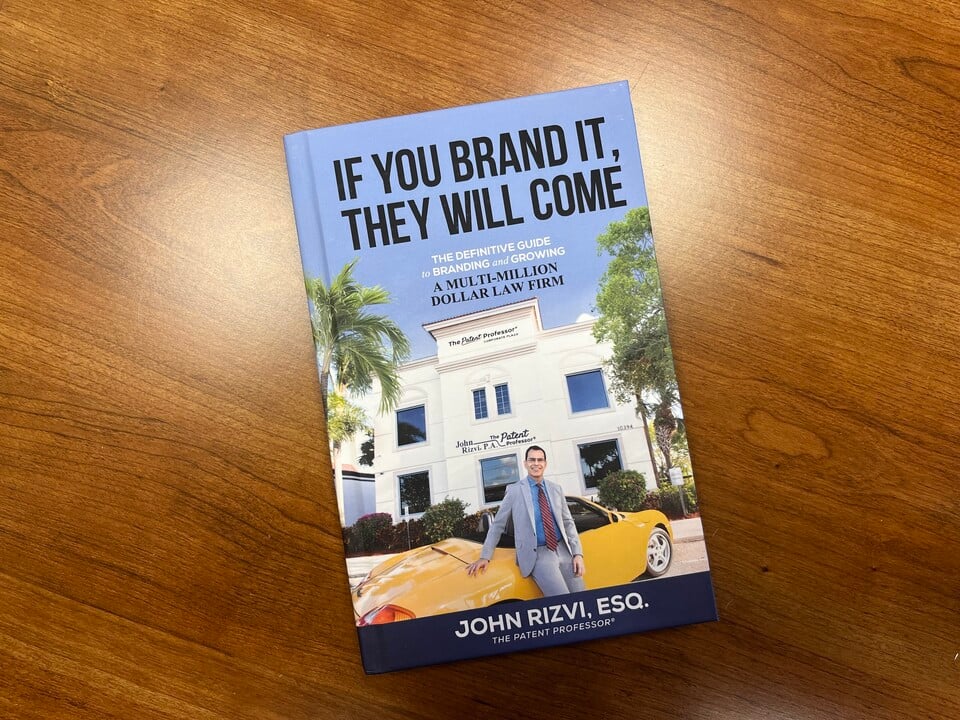A common question that laypeople ask about attorneys is, “Who sues lawyers?”.
This question betrays a common misunderstanding about how the legal profession and indeed the legal system as a whole work.
Lawyers are people, just like anyone else, and they have the same right of access to the legal system to address and resolve grievances as any other citizen.
There’s no “fast track” and attorneys have to follow the process, just like everyone else.
This means that, for example, when law firms infringe on other law firms’ trademarks or other IP, attorneys have to defend their IP or risk losing its protections and their rights under the law.
Here are five notable times that law firms sued each other over trademark infringement, along with some helpful hints and tips for keeping your firm from being next in a list of law firms suing law firms over trademark infringement!
1. “What’s in an initial?”
The English language has only 26 letters, and it’s commonplace for law firms to abbreviate their names. A Texas law firm, Paranjpe & Mahadass, was hit with a cease-and-desist from competitor PM Law Firm because Paranjpe & Mahadass often used P&M or just “PM” in its marketing.
However, the judge came back on summary judgment finding for the defendant, stating that no, you cannot trademark portions of the alphabet to “box out” competition, as attorney Ashish Mahendru, who represented P&M, put it in a post-ruling statement.
While the ruling appears to have overlooked “likelihood of confusion” issues (more on this later), it was nevertheless a win for P&M and, more broadly, the English language.
2. One Fish, Two Fish…Lawsuit!
Longtime readers will know that I started my legal career at Fish & Neave, who were later folded into the Ropes & Gray firm as a subsidiary IP branch.
However, the name “Fish” is relatively common in IP circles: Fish & Tsang, a boutique IP firm, sued big-name IP firm Fish & Richardson, often simply referred to as “Fish,” winning a declaratory judgment after F&R surprisingly stated they didn’t intend to assert their trademark rights against the smaller firm.
It was an unusual case because, had F&R fired back, they would have had a fairly good chance of prevailing. However, one thing this case illustrated was that some Fish should be careful which ponds they choose to swim in!
3. Google Keywords Bring “The Hammer” Down on Competitors
Jim Adler, known as the “Texas Hammer” in personal injury circles, went after a slew of competitors for using his firm’s trademarks as Google keywords in its proprietary AdWords to help route clients to their firms instead of his own.
However, Google only investigates and enforces trademark complaints if registered trademarks are used improperly in the visible ads themselves, not in the keywords or associated metadata. It’s worth noting here that generally speaking, courts tend to side with the defendant unless the keyword usages are egregious OR there are existing agreements in play which would prevent such usage.
This didn’t deter Adler from litigation, and Google keywords continue to be a contentious issue among law firms.
4. Okay…But Which O’Keefe Is Which?
Two Chicago-area law firms, both with the surname “O’Keefe” in them, went head-to-head in court after one of the firms attempted to shorten its name to simply “O’Keefe” as a trademark.
This case had it all: overlapping services, a strong likelihood of consumer confusion, and even geographical proximity.
O’Keefe, Lyons & Hines of Chicago took on O’Keefe Law Firm and the two firms reached an undisclosed settlement, a portion of which required the O’Keefe Law Firm to run a disclaimer on its web pages which states that the two firms are not affiliated.
5. A Call for “Sweet Justice” Leaves a Sour Taste
California personal injury firm Sweet James filed a suit against rival firm Sweet Justice and its senior partner, Rafael Contreras Sweet, asserting trademark infringement and a common law right to the name Sweet Justice based on both prior use and awarded and pending trademarks which supercedes Sweet Justice’s rights of usage.
The suit further alleges that Sweet James began using its various awarded and applied-for marks at least a decade before Sweet Justice even existed.
Tellingly, the USPTO’s Trial and Appeals Board rejected a later filing by Sweet Justice for trademark because of the pending application from Sweet James. This case is currently in litigation in the California court system.
How to Avoid Trademark Litigation with Your New Brand

As we’ve seen, branding law firms can be a minefield. Something as simple as abbreviating your firm’s name in casual communication can lead to messy legal entanglements that you and your firm would obviously prefer to avoid.
But how can you get around these common pitfalls and make sure you’ve got a brand that will resonate with your client base while not getting you sued?
By taking these five steps when you’re launching your new brand, you can prevent many of these actions before they have a chance to get started.
Know who’s around.
Geographical proximity, or lack thereof, can save or sink your brand. If your firm goes by “Apple Law” and it practices only in Florida, it’s not as likely that that you’re going to draw the attention of “Big Apple Law” in New York City. This is particularly true if the area of law that you practice is typically a state law matter.
However, if your Apple Law works on Long Island and Big Apple Law is based in Manhattan, you could be on a collision course even if you practice totally separate areas of law.
By finding out who’s around who might share elements of the name you’re considering, you can short-circuit a lot of legal problems before they ever become issues in the first place.
Make sure your brand is as distinctive as possible.
Your brand needs to stand far enough apart from others to quash any questions as to whether you’re infringing, while giving you maximum firepower to fight back if someone else “borrows” your branding. Everything you choose, from the name to the symbols and imagery you associate with your brand, could have an impact on your name recognition and attract or repel infringement actions.
This means it’s very important to make sure you avoid generic or overly broad symbols in your branding, such as the Scales of Justice.
You can incorporate them, sure–but it’s a very bad idea to make them a singular element of your brand.
Make it as clear as you can.
Likelihood of marketplace confusion is one of the major factors that trips up new brands going up against established names.
If your brand obviously stands apart from others in your geographic area of practice, legal niche, and more widely established names, your chances of fighting an infringement action become a lot better.
There’s no clear delineation between “similar” and “TOO similar,” and the courts have to weigh a number of factors when deciding whether there’s likelihood of confusion.
The further you distance yourself from others in your practice area, the easier it will be to disprove claims of likelihood of consumer confusion.
Be careful when using Google and other online advertising.
Bidding on popular keywords is a common practice for businesses of all kinds. However, lawyers tend to get very tetchy when their trademarks pop up as keywords for other law practices. Before you settle on a keyword or set of keywords, check the keywords you’re considering against existing legal trademarks.
If you end up finding matches, such as with “The Texas Hammer,” it’s probably better to avoid them altogether. An experienced IP and branding attorney can help you identify problem areas and phrases that could end up getting you sued.
Remember that lack of intent to infringe is NOT a defense!
Just because you didn’t willfully infringe on someone’s mark, or them on yours, doesn’t mean there’s an affirmative defense to infringement claims. If the court finds that your brand, or elements of it, are too close to a competitor’s, your competitor can recover damages from you.
By making sure your brand is distinctive and that you’re as far removed from your competitors as you can possibly be in every regard, your chances of not having to pay out for infringement are greatly increased.
Of course, if you follow the steps and tips I’ve laid out above, the question is unlikely to come up in the first place. The best defense to legal action is not to put yourself in a position where legal action could occur!
If you’re looking for an attorney to help you create a strong, recognizable brand that won’t run afoul of your competition in the marketplace, I invite you to reach out for a consultation today!
ABOUT JOHN RIZVI, ESQ.

John Rizvi is a Registered and Board Certified Patent Attorney, Adjunct Professor of Intellectual Property Law, best-selling author, and featured speaker on topics of interest to inventors and entrepreneurs (including TEDx).
His books include "Escaping the Gray" and "Think and Grow Rich for Inventors" and have won critical acclaim including an endorsement from Kevin Harrington, one of the original sharks on the hit TV show - Shark Tank, responsible for the successful launch of over 500 products resulting in more than $5 billion in sales worldwide. You can learn more about Professor Rizvi and his patent law practice at www.ThePatentProfessor.com
Follow John Rizvi on Social Media
YouTube: https://www.youtube.com/c/thepatentprofessor
Facebook: https://business.facebook.com/patentprofessor/
Twitter: https://twitter.com/ThePatentProf
Instagram: https://www.instagram.com/thepatentprofessor/



